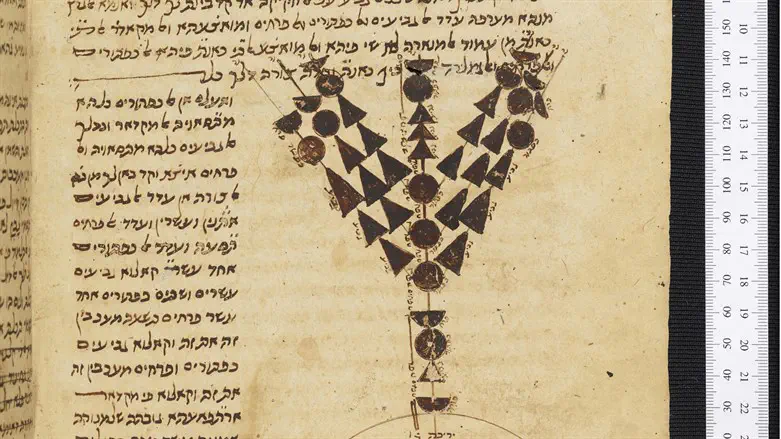
Leon Bar, a retired lieutenant colonel and IDF veteran, heroically saved countless lives during terrorist attack in Sderot and the Gaza envelope. Using a cabinet door as a stretcher, he evacuated wounded residents, transported over 50 Re’im festival attendees to safety, and guided recovery teams through dangerous areas. Among the people he saved on October 7 was Rabbi Yossi Urim, a Torah MiTzion graduate. Despite the chaos, Leon selflessly returned to rescue more survivors. Tragically, while searching for survivors with his son Omer, he was ambushed and killed. Leon’s extraordinary courage and humanity stand as a testament to his character, leaving a legacy of hope and heroism in times of crisis.
Rabbi Yossi Urimis a Torah Mitzion graduate from Chicago, Teacher at the Neveh High Yeshiva and military Torah instructor (Hatzra"m) at the Sderot Hesder Yeshiva
The Torah portion of Beha’alotcha begins with the verses (Bamidbar 8:1-4):
"And the Lord spoke to Moshe, saying: Speak to Aharon and say to him, When you light the lamps, the seven lamps shall give light toward the face of the menorah. And Aharon did so; he lit the lamps toward the face of the menorah, as the Lord commanded Moshe. And this was the work of the menorah, beaten gold, from its base to its flowers it was beaten; according to the vision the Lord showed Moshe, so he made the menorah."
Rashi explains the juxtaposition of the section on the menorah to the section on the offerings of the princes:
"Why was the section of the menorah placed next to the section on the princes? Because when Aharon saw the inauguration of the princes, his spirit was weakened, as neither he nor his tribe was included in the inauguration. The Holy One, blessed be He, said to him: By your life, yours is greater than theirs, for you light and prepare the lamps."
Rashi cites a Midrash that explores the placement of the menorah section in Sefer Bamidbar, following the description of the offerings of the princes who inaugurated the Mishkan. Seemingly, this section should have been included in Sefer Vayikra, which primarily discusses the laws of the Kohanim. The Midrash answers that Aharon’s spirit was weakened because he and his tribe were not included in the inauguration, and Hashem comforted him by emphasizing the lighting and preparation of the menorah, a task unique to him and his descendants.
The Ramban questions this Midrash: Why was Aharon comforted specifically by the lighting of the menorah, and not by other unique priestly responsibilities, such as offering the incense, entering the Holy of Holies on Yom Kippur, or performing the sacrifices?
The Ramban explains:
"I saw further in the Yalkut (Tanchuma Beha’alotcha 5) and in Midrash Rabbah (Bamidbar 15:6), that the Holy One, blessed be He, said to Moshe: Go and say to Aharon, Do not fear, for something greater than this is reserved for you. The offerings of the princes are relevant only while the Temple stands, but the lamps are eternal—‘before the face of the menorah, the lamps shall shine forever.’ Moreover, all the blessings I have given you to bless My children are eternal.
The Ramban elaborates that Hashem comforted Aharon with the knowledge that his descendants would inaugurate the Temple during the time of Hanukkah through the miracle of the oil and the lighting of the menorah. Furthermore, the Ramban notes that even after the destruction of the Temple, when sacrifices cease, the mitzvah of lighting the Hanukkah candles would endure, serving as a perpetual symbol of hope and divine connection.
This interpretation raises another question about the Midrash cited by Rashi: How could Aharon, known for his love of peace and his concern for all of Israel, feel diminished in comparison to the princes?
Perhaps Aharon’s concern was not motivated by jealousy but by a profound worry about the future of Israel. What would happen if the nation sinned and turned away from Hashem? Would the Shechinah, which now rested in the Mishkan, abandon them? Could Israel, like other nations, disappear?
Hashem comforted Aharon with the promise of the menorah, which, according to the Ramban, symbolizes the miracle of Hanukkah. The small, pure jug of oil discovered among the defiled ones represents the inner purity of the Jewish people, an indelible and eternal spark. This purity cannot be extinguished, and the lighting of the Hanukkah candles, even in exile, serves as a testament to this everlasting sanctity.
In our times, we have witnessed the extraordinary inner purity of Am Yisrael. During the past year, as on Simchat Torah, when countless individuals, like Leon Bar, risked their lives to save others, the essence of Jewish unity and mutual responsibility shone brightly. In times of crisis, divisions are forgotten, and the inner sanctity of our people emerges with incredible strength.
May we merit to hear good news soon, with the return of our brothers and sisters who are still captive. Wishing you a joyous Hanukkah filled with light and hope!